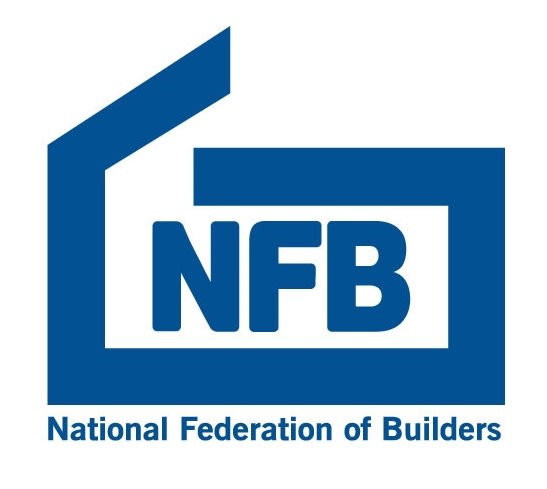Andrew Carpenter joins Programme Board of national CO2nstruct Zero initiative
One of the Midland’s leading advocates for modernising the construction sector is to help lead a major national initiative aimed at transforming the industry in response to the global climate emergency.
Andrew Carpenter, CEO of Constructing Excellence Midlands, has been appointed to the Programme Board of CO2nstruct Zero, the UK construction industry’s zero carbon change programme.
Launched in March 2021 by the Construction Leadership Council (CLC), CO2nstruct Zero is the industry’s key response to achieving the UK Government’s objective of net zero for the whole economy by 2050.
The aim is to promote the high-level priorities that the industry must work on in order to drive carbon out of all parts of the construction sector, from manufacturing and design to construction and operation of assets.
In addition to Andrew Carpenter’s role on the board, Constructing Excellence Midlands is supporting the programme as CO2nstruct Zero Partner.
Andrew Carpenter, CEO of CE Midlands, said: “I am delighted to be asked to join the CO2nstruct Zero Programme Board and to have the opportunity to help shape construction’s response to what is, without doubt, the single biggest issue facing our industry and indeed our society and our planet.
“All of us have a role to play and construction needs to achieve nothing less than a revolution in how we embrace innovative methods and materials, design out carbon, build responsibly and optimise the efficiency of both new and existing homes and buildings and how we use them.
“The industry has learned vital lessons from COVID and for the first time in many years has come together with one voice. We now need to harness these recent achievements and direct our attention to the even greater challenge of climate change.”
CE Midlands leads the change agenda in construction regionally as part of Construction Excellence’s national mission to improve the industry’s performance and produce a better built environment.
A new Centre for Policy Studies (CPS) report caught Martyn Jones’ attention this month. The report, Housing Guarantee, argues that small and medium sized contractors (SMEs) need to play a much greater role in the housing sector, including getting priority when public sector land is sold for housing.
The CPS report calls for changes to the planning system to open up the market and allow better access for SMEs as part of the effort to diversify housing supply. The report argues that there should be less focus on increasing the number of planning permissions going through the system and more reforms helping small and medium sized house builders to access land.
Housing Guarantee highlights the fact that the top 10 house builders currently build 40% of all new homes, with the top six controlling around 33% of the market. The six biggest house builders alone currently have roughly one million plots in their strategic land banks, which is nearly the equivalent of the target supply across England over the next five years.
According to the CPS, this means smaller builders often face challenges obtaining land and risk being squeezed out of the system all together. While they built around 40% of homes in the 1980s, today they build 10%.
To date, attempts to increase the housing supply have focused on large volume builders and increasing the number of planning permissions going through the system. However, according to the report, the 2010 planning reforms led to permissions rising to over 350,000 which only resulted in 200,000 new homes being built. To increase the number of houses being delivered, the report recommends selling public sector land to local house builder SMEs.
It also recommends a housing delivery test for local authorities based on the number of houses built for the community, not planning permissions granted and, significant in this context, introducing panels of local builder SMEs
Minister of State for Housing, Chris Pincher MP, commented: “This CPS report is a very welcome contribution to the debate around both house building and planning reform”. It highlights the important role that SMEs can and should play in delivering more homes and helping the UK’s economy build back better. “A successful SME sector is crucial in our shared objectives of planning reform and increased house building,” he said.
But are our local SME contractors ready for this crucial role? And what can be done to support them?
Back in 2003,a report by members of the Bristol Constructing Excellence Club identified both the strengths and vulnerabilities of SMEs. The strengths identified in the report applicable to housing provision are: the ability to respond to the needs of niche markets by taking on jobs that are too small for larger organisations (in this case pockets of land that that are too small for larger house builders); the ability to get close to customers and accommodate changes to their requirements; and to respond more flexibly to change. And, staff are more closely linked to each other, the company, and local communities.
But what about SME vulnerabilities? Again, in the context of housing provision, they include dictatorial owner/manager ethos where the owner controls everything; a lack of access to capital; lack of formal structure and operating system; decision making based too much on ‘gut feeling’; and a lack of formal time and cash flow management.
Supporting SME house builders to build back more and better requires a crosscutting strategy building on their strengths and addressing their vulnerabilities. That includes key areas such as more easily accessible finance as set out in CESW’s publication, Development Finance: A best practice guide to lending. [The CESW guide provides a means by which developers, funders and construction teams can work together making the funding process more collaborative and efficient – making it easier for SMEs to access funding, reduce risk, increase their pipeline of work and improve their profitability.]
Other support includes national and local government implementing appropriate macroeconomic policies; the capability and desire of the stakeholders in housing developments to provide conducive microeconomic business environments; simplified legal and regulatory frameworks; supportive education and learning; and the supply of sufficient skilled labour. And last, but by no means least, the capacity of SMEs themselves to implement up-to-date operating and business practices and work collaboratively in the local panels proposed in the CPS report.
These panels should be founded on the principles of Constructing Excellence. More specifically, Constructing Excellence could help on the demand side by encouraging housing development stakeholders to create more conducive microeconomic business environments for SMEs, and on the supply side, by supporting SMEs in adopting up-to-date operating practices and business strategies, and offering digitally optimised smart construction.
May-September 2021
West Midlands 5G are looking for 2 innovative construction companies to take part in their fully funded 5G Spring Accelerator challenge. Simply share your challenges & the cohort will get on with the solutions.
Whether it’s health & safety, wayfinding, asset tracking, reducing waste & expensive errors, or simply getting things done faster, better and on time, this 5G accelerator programme and test bed facilities, with full tech support, can help create & validate real world solutions. Make your construction company 5G ready.
Find out how you can get involved by emailing Clare Mckee, West Midlands 5G Business & Stakeholder Engagement Manager at clare.mckee@wm5g.org.uk
Link to the challenge https://5pring.org/programmes
Hi, and welcome to May’s Newsletter.
I have the pleasure of being able to use this platform to celebrate the launch of something we here at CE Midlands are extremely excited about, our “Diploma in Collaboration in Construction”.
During one of our recent webinars, it was stated that “people know the word collaboration but not the behaviours required to deliver it”. I can certainly vouch for this having heard comments such as “its sitting round a table, being friendly and eating biscuits” to “having a non-adversarial contract in place that we do not how to use”. It is so much more. It is not simply a system, process, or contract but a combination of culture, trust and togetherness with the right tools to support effective and efficient delivery.
As our lives and work return to some resemblance of “normal” it is imperative that the learnings and best practices shown during the past year are not lost and we do not, as a sector, revert back to “type”.
The diploma has the core values of Constructing Excellence at its heart and contains 12 modules designed to give delegates the theory and the skills to be able to return to their workplaces and implement the practices. Representatives from Laing O’Rourke, Morgan Sindall and Rider Levett Bucknall are part of 12 tutors who will be sharing their knowledge as part of the twelve-month online course. The diploma – which is working towards level five accreditation with Nottingham Trent University, Wolverhampton University and Swansea University- is taught over a year, with one half-day a month of tutoring, followed by additional reading material, homework and an indication of how what has been learned will be included in the delegates’ day-to-day activities.
Diploma Modules:
1. Introduction to the Principals of Collaboration and Integration in Construction
2. Leadership & Team Management
3. ISO:44001 Collaboration to include Behavioural Science & Psychology
4. Lean & Continuous Improvement
5. Process & Value Stream Mapping
6. Value Toolkit to include the Construction Playbook
7. Design Team Integration
8. Design for the Environment
9. Smart Construction (Digital & Offsite)
10. Quality & Compliance
11. Supply Chain Management
12. Collaborative Forms of Contract
Having been taught on the previous iteration of the diploma as well as helping organisations with service improvement projects utilising this knowledge, I can honestly say, that it has not only changed the way I work and approach projects but has delivered real-life benefits and improvements to value, quality, time, safety and many others by truly working collaboratively.
With the Construction Playbook, the Roadmap to Recovery and Building Safety Bill all calling for more collaborative approaches and it being business imperative post COVID, there is no better time for the industry to embrace & deliver collaboration and disrupt the traditional.
We hope to see you on the diploma!
For further information please visit cemidlands.org where you will find podcasts, webinars and more.
Marc Preite, Capital Works Project Manager for Sherwood Forest Hospitals NHSFT
















